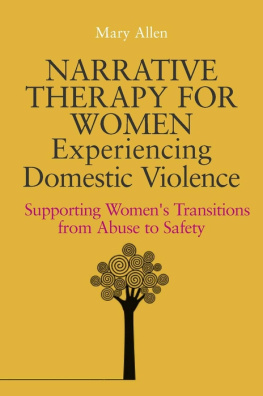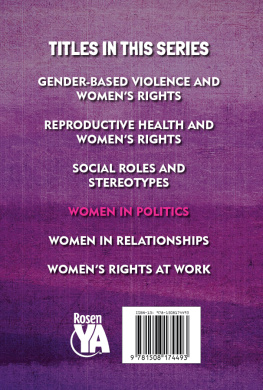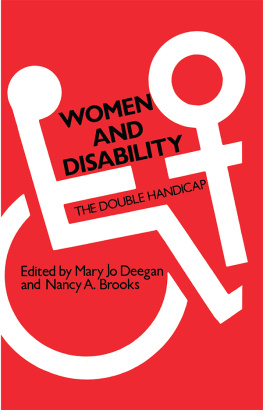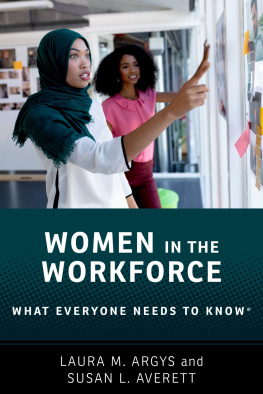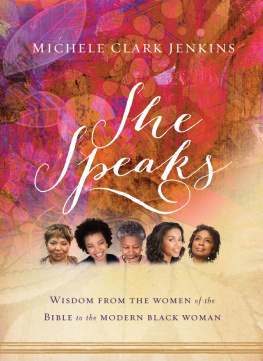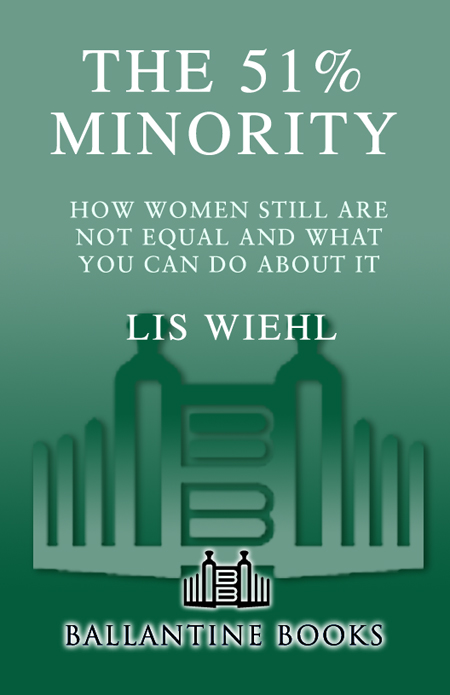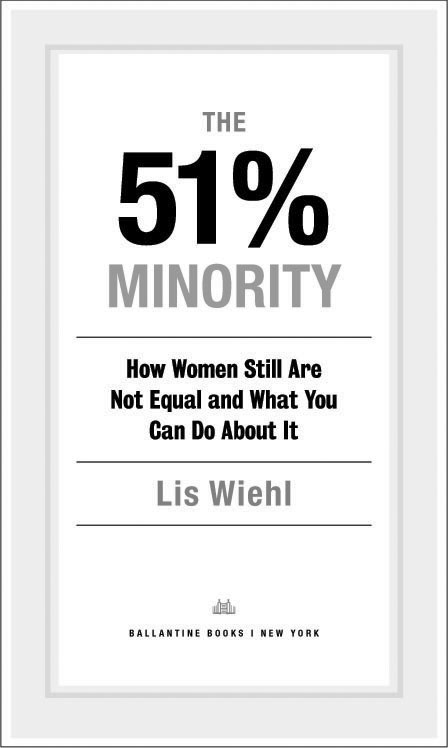INTRODUCTION
R ecently, I was at a dinner party and a raucous conversation ensued concerning the current political climate. There was much discussion of civil liberties, the Supreme Court, and, of course, the war in Iraq, but then the gentleman seated to my right, a successful gay professional, said something that alarmed me. I certainly wouldn't want to be a woman today, he told the table. It's a no-win situation. You're damned if you do and damned if you don't with every single decision, and your body is a political playground. At least as a gay man, I know where I stand. As a woman, you're stuck in some weird societal purgatory.
Yeah, another man agreed. Isn't it strange that women are fiftyone percent of the population and still get the short end of the stick on almost every front?
The conversation was a punch in the gut. Not because it was disrespectful, but because I realized it was true. As women, not only are we expected to make incredible sacrifices and compromises that men are never expected to make, but we are then criticized for doing so (often even by ourselves) each and every step along the way.
The following night the conversation was still bouncing around my mind when, between my job as a professor and my job as a television legal analyst, I was making an on-the-fly, less-than-perfect dinner for my two children, nine-year-old Danielle and thirteen-year-old Jacob. I looked at my young daughter as she animatedly talked about her day, and I pondered her future. As she grows, is she going to get the same opportunities and advantages that my son is? Hey, Dani, I asked her. Do you think there are more males or females in this country?
More men! Jacob answered quickly. That's why we're in control!
Nope! I announced. Women are fifty-one percent of the population.
Then why don't we rule the world? Dani asked. We should take back the rights! Take back the rights! Take back the rights! Jacob enthusiastically joined her in the chant. Take back the rights!
Wait a minute, I told them. You can't take back what you've never had.
They both looked at me. So what is it exactly you want, then? Jacob asked.
Hmmm, I thought. Good question.
It seems we have come a long way, baby. Commercials now hark that choosy moms (and dads!) choose Jif ! And a woman has been president of the United States (at least on TV, until she got canceled). But is it only superficial? Are we just being pacified, yet still being served the same stale rap? Did we make some progress only to have it usurped while we were minding the kids? Have we taken two steps forward and one step back? Or worse one step forward and two steps back?
True, we're no longer stuck in the narrow role of the middle-class American housewife that Betty Friedan described in The Feminine Mystiquecertainly we'll all admit the women on Desperate Housewives are far from thatnor do we as a group feel harassed by the implied inequality of men holding doors for us. But are we treated equally under the law? Quite simply, no!
Women in America have fought for and achieved certain rights, such as the right to own property, the right to vote, and even the right to hold public office, but there's still gross inequity. For example, since 1789 only 34 women have served in the U.S. Senate, compared to 1,850 men. In the workplace, the pink-collar ghetto is alive and well. Though today we earn more than half of all bachelor's degrees, once out in the workforce we are still only making 73 cents for every dollar a man makes, and of the Fortune 500 companies, there are only eight women in the top positions. Our bodies are a veritable battleground, and not just over abortion. Several employers are now getting away with making women's weight part of their job description, but can you imagine a man being told he'd lose his job if he went bald? The average weight for women in their forties is twenty-five pounds heavier than it was in 1960, yet the healthy image from magazines is a look roughly twenty-five pounds lighter than it was then. Perhaps more frustrating is that we are continuously bombarded with stories and tricks on how not to look fat and more than a quarter of us feel the need to lie about our weight. Socially, we're still considered less than completely feminine if we're anything but demureit's still daring to ask a man on a date, and downright audacious even to think of asking a man for his hand in marriage.
A recent survey by the Department of Labor shows that the average workingwoman spends about twice as much time as the average workingman on household chores and care of the children. On real estate deeds in many states, an unmarried woman is still listed as a spinster. Funny how there isn't a male equivalent. And if you're not irritated yet, why is it that in many states women are denied prescription coverage for birth control even though men are allowed it for Viagra?
Yes, even with the drastic changes that have occurred in our society during the last twenty-five years, women still get, as my dinner companion so succinctly put it, the short end of the stick.
This is nothing new. Throughout the centuries, women have consistently gotten the short end of the stick when it came to freedom, power, and property. In some times and places, this was sugarcoated with idealizationwomen were pure, dainty creatures who ought not soil their pretty little hands with business or matters of state. (Never mind that poor women have always toiled with their hands.)
It was in the eighteenth century, when a collection of colonies decided that they were being treated unjustly, that the American woman's fight for equal treatment began. We've been left out from the beginning. In 1776 Abigail Adams wrote her husband, John, who was attending the Continental Congress in Philadelphia, In the new code of laws, remember the ladies and do not put such unlimited power into the hands of the husbands. John Adams replied, I cannot but laugh. Depend upon it, we know better than to repeal our masculine systems. And the men convening there drafted the Declaration of Independence, which states that all men are created equal.
Yes, shortly after the all men are created equal line, it became self-evident that we women were somehow not. We weren't allowed to vote for the first president, or the second. In fact, it wasn't until the thirtieth president that we finally got to cast our vote, and we only got that right because in the late 1800s the women's suffrage movement began to demand it.


